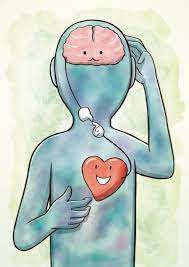By Lydia Shaw || Contributing Writer

Last semester, my chronic illness declined. My chronic pain and acute pain attacks worsened. My hypersomnia increased so much that I could not sustain more than two hours’ worth of activity, slept 9-10 hours per night, and began to have “sleep attacks.” I spent more weekends home for doctors’ appointments than I did at F&M.
In the fast-paced and rigorous academic environment of F&M, students are expected to do more—to push themselves in their already challenging classes, to join several clubs, and to attend campus events. But F&M’s environment is not sustainable for every bodymind, whether disabled or not.
When I was struggling to meet all of my obligations last semester, my mother and my partner would remind me that nothing was mandatory. If I was having a flare, it was not mandatory that I attend class—the more important thing was rest. If I could not do the amount of schoolwork that I wanted to each day, that was okay—it was more important to do what I could and let my body relax. I didn’t want to acknowledge that it was healthier to slow down. I was used to overachieving, so I felt guilty prioritizing my health when I could have been working.
However, acknowledging that nothing is mandatory doesn’t indicate failure or an inability to achieve. Rest is vital and productive. In our environment, we tend to value achieving over health. We forget that we don’t need to suffer in order to meet our goals. In fact, we can do more when we prioritize the health of our minds and bodies. (Case in point: you probably write better when you’re not exhausted—I know that I do!)
I would like to acknowledge that being able to say “nothing is mandatory” accords a certain amount of privilege. Because I have flexible attendance—a disability accommodation—I am not penalized for missing class. Because I have the financial support of my parents, I can afford the option of missing shifts at work. But being chronically ill means that if I don’t rest, I run the risk of symptoms flaring.
I suffered the cost of pushing myself too hard last semester when I crashed over winter break. At home, I took several-hour naps every day and pretty much lived on the sofa with my heating pad. I told myself that this semester, my last semester at F&M, I would let myself rest without guilt. While my pain is under control (thank you, Penn Medicine), my hypersomnia is not. If I do not rest, I will crash again, and I want to finish out my F&M experience engaging with my amazing professors and spending time with my loving friends.
Whether or not you have a disabled or ill body/mind, try to prioritize rest this semester. It’s a learning process but one very well worth it.
Lydia Shaw is a contributing writer. Her email is lshaw@fandm.edu.